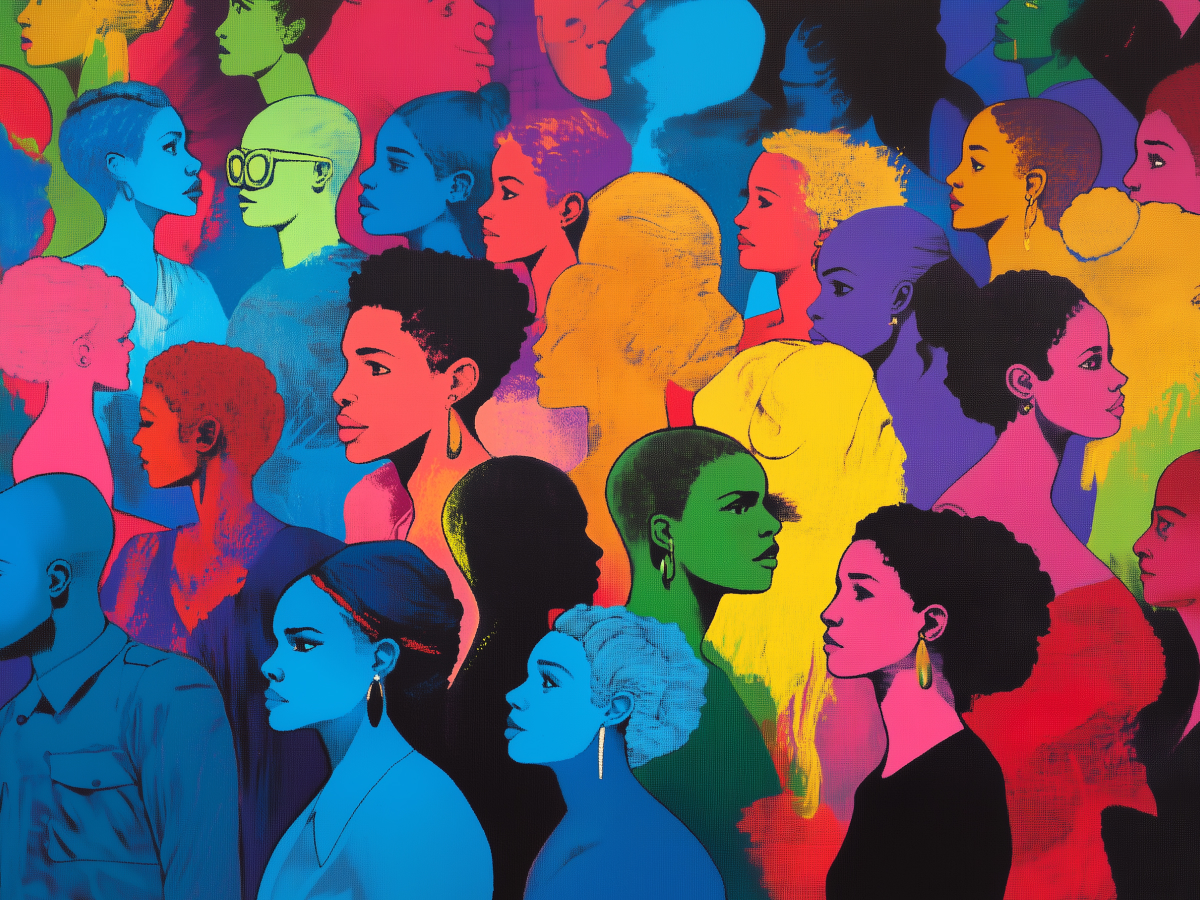AI systems learn from vast amounts of data, and the problem lies in the data itself. The training sets used often reflect the biases present in society, including historical inequities and systemic discrimination.
For example, facial recognition algorithms have been shown to misidentify people of color at disproportionately higher rates than white individuals, a direct result of biased data sets.
Non-diverse teams further aggravate the problem. When the groups that build and train AI systems lack diversity, they risk embedding their own limited perspectives into the technology.
Decisions about which data to use and how AI systems are deployed are influenced by a homogenous set of experiences, often excluding the viewpoints of marginalized communities.
The push for rapid deployment, driven by high-powered investors with revenue targets and client demands, amplifies these biases.
Without deliberate efforts to counteract bias, AI systems risk undermining DEI initiatives. Organizations may have strong policies in place for hiring diverse talent or creating inclusive work environments, but biased AI systems can negate these efforts by reinforcing exclusionary practices.
Generative AI presents both opportunities and challenges. While it can simplify processes, automate tasks, and generate new content, it can also perpetuate outdated stereotypes and widen equity gaps if bias in its foundational data is not addressed.
Creating AI for everyone
Building AI systems that serve all of society requires representation that mirrors the real world. It involves a wide range of individuals in AI development, from C-suite executives to data scientists, engineers, and even entry-level staff.
Each layer of involvement brings unique perspectives that help identify blind spots and reduce bias in AI outputs.
Data collected, processed, and analyzed by diverse teams is more likely to be scrutinized for inherent biases, resulting in more accurate and fair outputs. For example, involving women, people of color, and other underrepresented groups in AI design can make sure that AI models do not favor one demographic over another in areas such as job recruitment or loan approvals.
How diversity in AI can end non-inclusive practices
Non-inclusive practices often persist in AI systems because they are deeply embedded in the data and decision-making processes that create these technologies. Diverse teams can disrupt this cycle by challenging the status quo and offering alternative perspectives that promote equity.
Extracting insights from underrepresented communities only when it’s convenient is not enough. These voices must be continuously integrated into every stage of AI development, from data collection to algorithm design and final deployment.
A report by the World Economic Forum states that diverse teams are 35% more likely to outperform less diverse ones, showing the tangible benefits of inclusivity in tech innovation.
Making sure AI benefits everyone, not the privileged few
Generative AI has the potential to widen existing disparities, particularly for marginalized and underrepresented groups. Without equitable access to the tools and knowledge needed to participate in AI development, these communities risk being further excluded from the digital economy.
Equitable access is more than providing technology. It requires investment in upskilling programs and educational initiatives that prepare diverse users to contribute to AI systems in meaningful ways.
Such an approach benefits individuals and helps organizations build AI systems that are more reflective of society’s complexity.
AI needs broad participation and skills training
Broadening participation in AI development through training programs is essential to leveling the playing field. Upskilling initiatives should focus on giving underrepresented groups the technical and strategic skills necessary to shape the future of AI.
According to a 2021 report from the World Bank, nearly 85% of jobs in developing countries could be impacted by automation, making it imperative that these populations are equipped to engage with new technologies like AI.
The aim is to diversify who uses AI and who builds it. When diverse individuals have a hand in shaping AI systems, they can help ensure these technologies evolve to address societal disparities rather than deepen them.
AI alone won’t solve inequality without human oversight
While AI systems can process vast amounts of data, they cannot fully comprehend the nuances of human experiences, especially those of marginalized groups. Human oversight is essential to correct inequalities that AI systems may perpetuate.
AI used in criminal justice systems has been found to unfairly target minority populations. Without human intervention to assess and rectify these issues, such systems can entrench bias.
Human oversight involves not only reviewing AI outputs but also understanding the limitations of the data and algorithms. People can step in where machines fall short, ensuring that AI-driven decisions are ethical and fair across diverse populations.
Building a future where AI works for everyone
Creating systems that actively reduce disparities requires an ongoing commitment to inclusivity. AI, when guided by human oversight, has the potential to serve as a tool for positive change. Inclusive systems do more than avoid harm; they proactively work to close equity gaps.
AI systems developed with this mindset will better reflect the complexities of human societies, providing more nuanced and equitable outcomes. Over time, the collaboration between humans and AI can build a fairer future that benefits all communities.
Ethical AI is non-negotiable
For AI systems to serve society responsibly, DEI must be a non-negotiable part of every AI development policy. It isn’t a matter of ethical preference but a business imperative. Organizations that fail to incorporate DEI into their AI policies risk falling behind, both in terms of innovation and societal impact.
Ethical AI policies help guide the creation of systems that prioritize fairness and minimize societal harm.
When formalizing DEI practices within AI development, companies can avoid costly mistakes, such as deploying biased algorithms that damage their reputation or expose them to legal challenges.
Ethical AI can help build trust with consumers, who increasingly demand that the technology they interact with is fair and transparent.
AI needs constant ethical updates
Even the best AI policies require regular review. The pace of technological advancement means that what is considered ethical today may not hold up in the future. Continuous improvement of these policies ensures that they remain relevant and effective in addressing new challenges.
Regular policy revisions allow organizations to adapt to evolving societal norms and technological breakthroughs. As AI becomes more ingrained in everyday life, the need for flexible, forward-thinking policies will become more pronounced.
Marketing’s unique position to shape AI’s inclusive future
Marketing has a unique ability to influence how AI is used in society. As the industry that shapes consumer perceptions and trends, marketing can set an example by championing inclusivity in AI.
When shifting away from practices that prioritize profit over people, marketing leaders can make sure AI is used to promote social good.
History shows that marginalized communities often bear the brunt of technological advancements. If unchecked, AI systems could perpetuate this cycle at an unprecedented scale. The marketing industry must take immediate action to prevent AI from entrenching these disparities.
Marketing has a responsibility to use its influence to guide AI development in a way that does not exacerbate social inequities. Prioritizing fairness and inclusivity means marketers can help AI become a force for positive change rather than a tool that reinforces historical injustices.
Will we let history repeat or build an inclusive future?
The decisions made today will shape the future of AI and its impact on society. The question is simple: will organizations allow history to repeat itself by ignoring the harm biased AI can cause, or will they take action to foster an inclusive AI ecosystem?
The call to action is clear. Companies, especially those in marketing, must commit to breaking the cycle of inequality through ethical AI practices. It is a moral responsibility and a practical step toward a fairer, more inclusive technological future.





